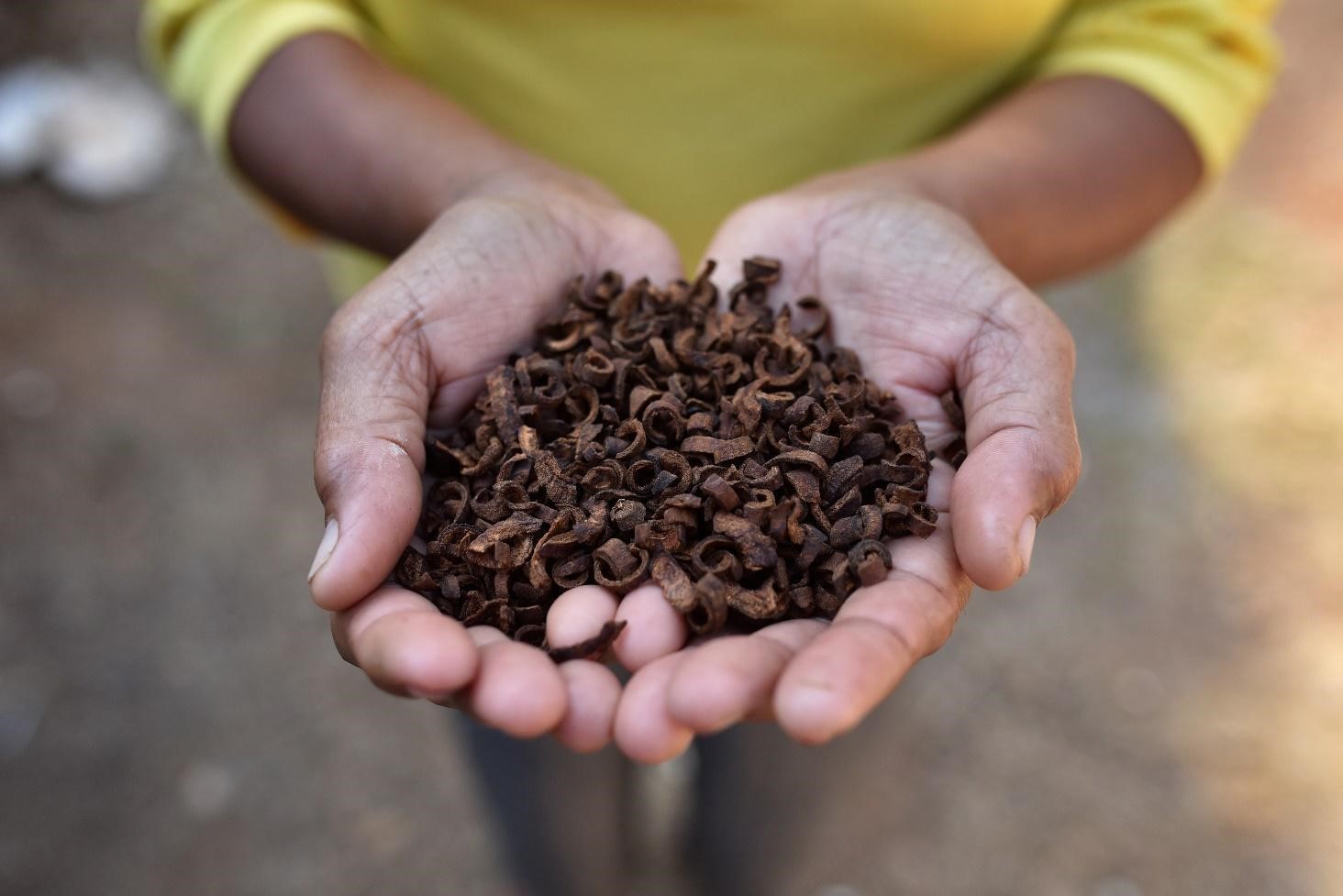A Journey of Mangrove Conservation and Community Empowerment in Indonesia
July 1, 2024

Rote Ndao is an island district in East Nusa Tenggara Province with 2,156 ha of mangrove areas, which is prone to climate change. Today, the communities are fighting back to protect the marine ecosystem.

Mama Novi showed the roasted mangrove seeds ready for coffee-making
"The ATSEA-2 training has been crucial in unlocking the economic potential that mangroves can offer to our community. We're eager for the certification, anticipating a significant boost in our community’s income"Novika Tupu - Dale Esa Community Group Leader
The Arafura and Timor Seas region has a wealth of marine biodiversity and ecosystems, including 25% of the world's mangroves with 45 distinct species. These mangroves are essential for many sea animals and protect the coasts from erosion and climate change. They also support the livelihoods of the surrounding community, showing a strong connection between human prosperity and healthy natural habitats.
Communities in Daiama Village, Rote Ndao District, East Nusa Tenggara Province, have a tradition of living side by side with nature and the ecosystem. One of them, the Dale Esa community, is led by a vibrant female leader, Novika Tupu, or Mama Novi (Mama is a respected salutation for an elderly woman in Eastern Indonesia), who sheds light on hopes for the future of conservation and sustainability. The community perfectly encapsulates the spirit of the people.
The community group has driven the Mangrove Coffee Project, an initiative that seamlessly blends traditional skills with contemporary conservation methods. Dale Esa not only diversifies Daiama's economy but also enhances the ecological value of mangroves beyond their protective roles. "This project could revolutionise our village's economy and raise awareness of the importance of mangroves," said Mama Novi.

Mama Novi and Dale Esa community member roast the mangrove seeds
UNDP, through its partnership with the Ministry of Marine Affairs and Fisheries (MMAF) in The Arafura and Timor Seas Ecosystem Action Phase II (ATSEA-2), funded by the Global Environment Facility (GEF), has supported the community group to develop their ideas to produce mangrove coffee and other products such as mangrove drinks and syrups. The project then leveraged the untapped economic potential by supporting the Dale Esa group to certify their product with a BPOM certification. Mama Novi states, "The ATSEA-2 training has been crucial in unlocking the economic potential that mangroves can offer to our community. We're eager for the certification, anticipating a significant boost in our community’s income."
The Arafura and Timor Seas Ecosystem Action Phase II (ATSEA-2) Project works together with various stakeholders to protect the environment and develop the coastal communities. It promotes collaboration to protect mangroves and supports activities such as mangrove planting and sustainable fishing. This approach aims to balance human needs and marine ecosystem health, as in Daiama Village, Rote Ndao District, Indonesia.
As the saying goes, “Together we are stronger”, Mama Novi is not alone. In her village, Mama Novi has been working relentlessly with Steven Mesah or Om (Uncle) Steven, who leads the "Mulut Seribu" community surveillance group (Kelompok Masyarakat Pengawas/ Pokmaswas). Om Steven and his community have successfully replanted 13,000 mangrove seedlings in the village. Their collaboration strengthens the commitment and knowledge sharing among communities that strive to preserve nature. Om Steven reflects, “meaningful environmental action has been catalysed by government support and targeted training,” highlighting the importance of community awareness, sustainable practices, and conservation efforts.

Om Steven in Daiama Village on the land earmarked for new mangrove planting
The collaboration between Mama Novi and Om Steven represents a powerful model of community leadership that combines economic innovation and environmental conservation. Their collective efforts not only showcase the economic value of mangroves but also underscore the critical role of community-led environmental protection. The ATSEA-2 project supports Daiama Village by providing training, facilitating dialogues with government bodies, and promoting alternative livelihoods, ensuring the sustainability and impact of the village’s conservation work. This approach illustrates the project’s commitment to empowering the communities for a sustainable future.
Daiama's journey from traditional livelihoods to pioneering initiatives like the Mangrove Coffee Project is a testament to the power of community-led conservation. Highlighted by the ATSEA-2 project, Daiama’s experience offers valuable insights into how integrated efforts can support global environmental objectives and improve community well-being.
Daiama Village’s transition showcases the significant impact of local community empowerment through conservation. By accessing essential resources and fostering open dialogue, Daiama exemplifies effective community-led action to achieve sustainable environmental outcomes, ensuring the mangroves’ sustainability and the community's prosperity.
Written by Stella Yovita Arya Puteri
Edited by Enggi Dewanti and Wiryawan Nimpuno
*The story is originally sourced from the ATSEA Newsletter Q1 2024

 Locations
Locations